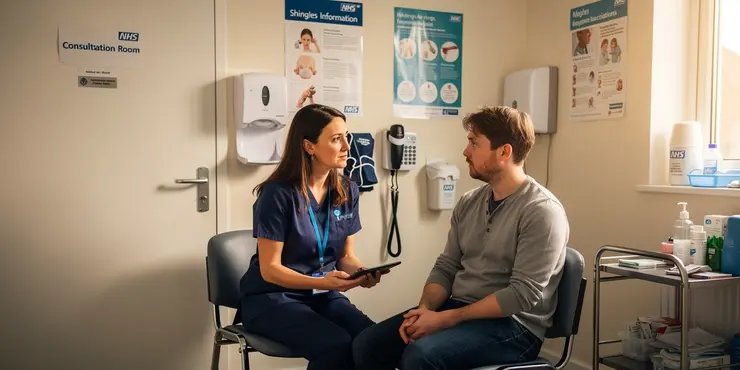
Find Help
More Items From Ergsy search
-
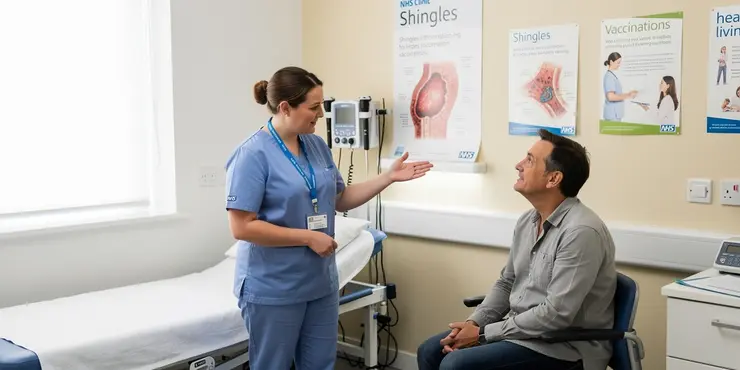
Is shingles contagious?
Relevance: 100%
-
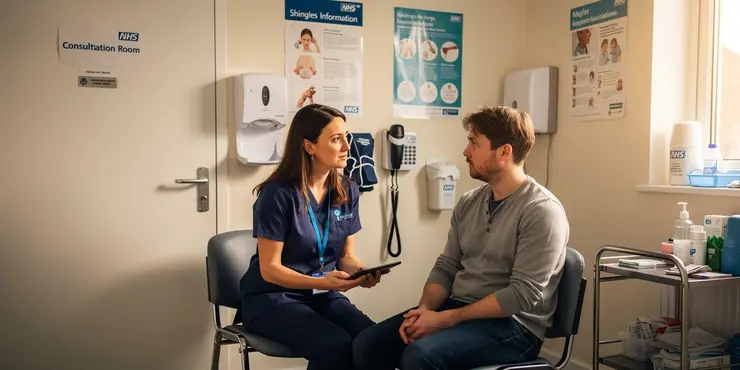
What is shingles?
Relevance: 100%
-
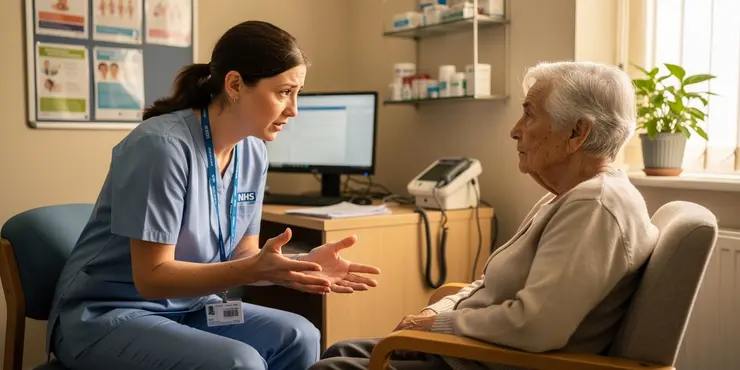
What is Shingles?
Relevance: 100%
-
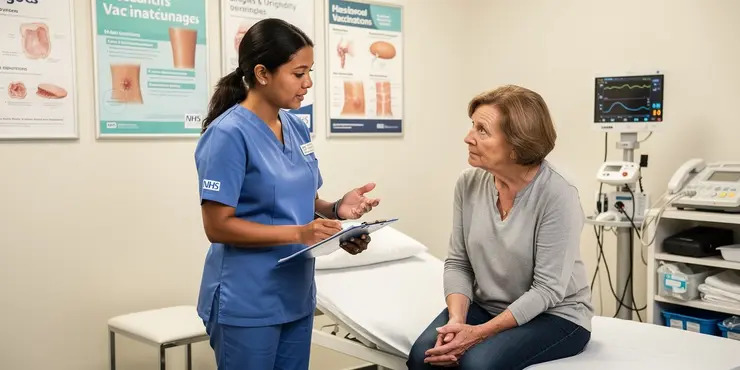
Is shingles contagious?
Relevance: 99%
-
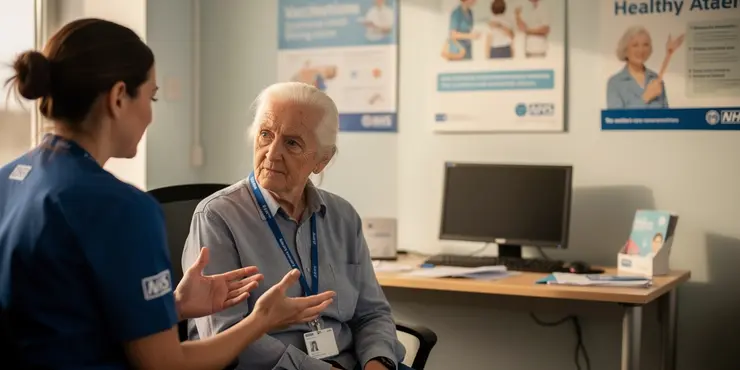
Can shingles be prevented?
Relevance: 96%
-
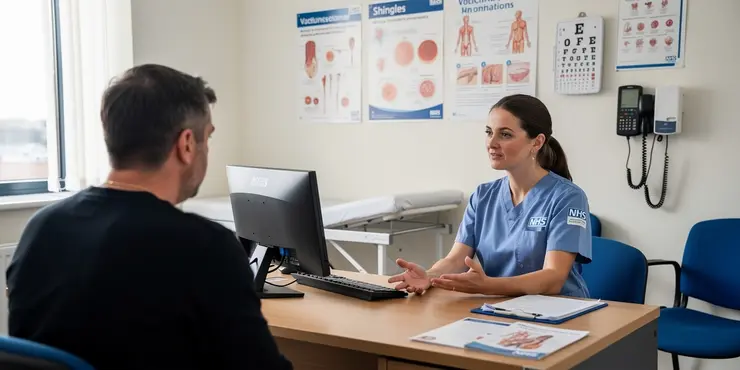
What causes shingles?
Relevance: 95%
-

What causes shingles?
Relevance: 95%
-
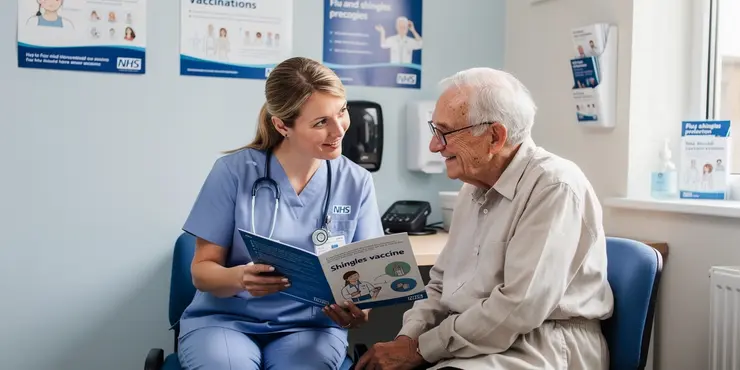
Is the shingles vaccine safe?
Relevance: 95%
-
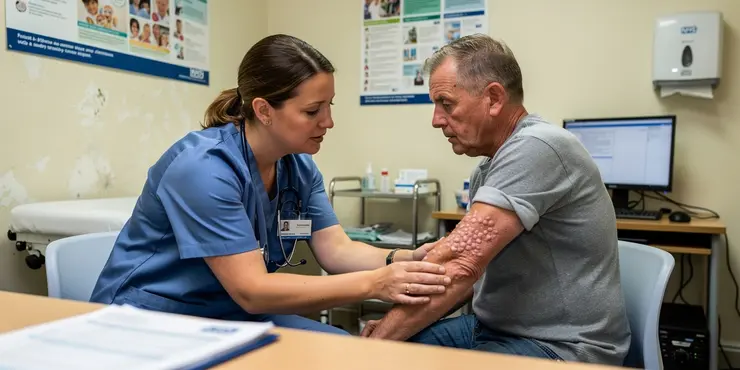
How is shingles diagnosed?
Relevance: 95%
-

Can shingles be prevented?
Relevance: 95%
-

What are the symptoms of shingles?
Relevance: 94%
-

Who is at risk of developing shingles?
Relevance: 92%
-
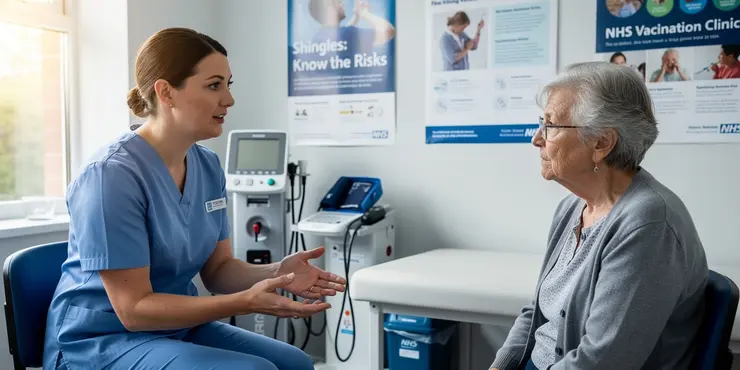
Are there any complications associated with shingles?
Relevance: 92%
-
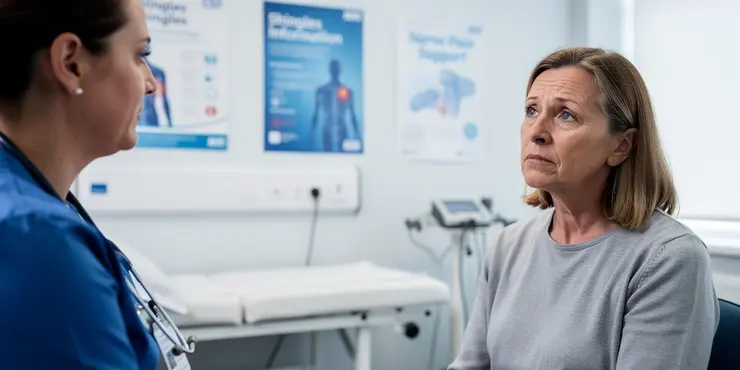
Are there any complications associated with shingles?
Relevance: 91%
-
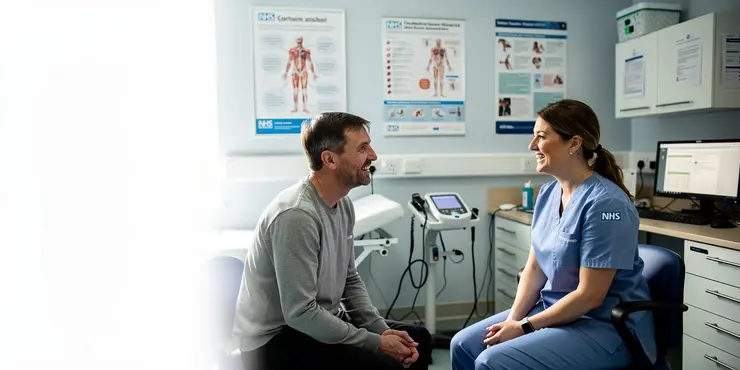
Can stress trigger shingles?
Relevance: 91%
-

What treatments are available for shingles?
Relevance: 91%
-

Can stress trigger shingles?
Relevance: 91%
-
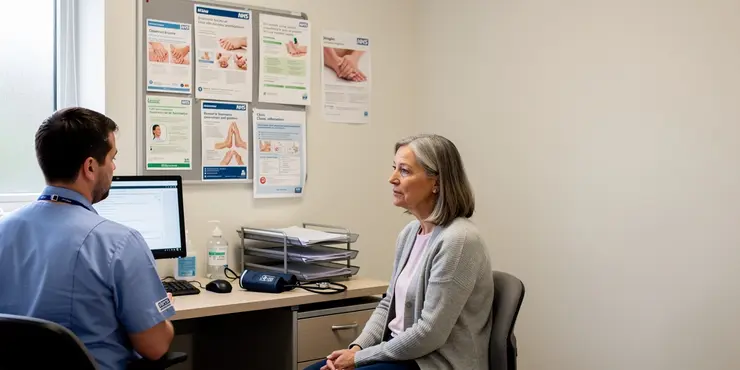
What treatments are available for shingles?
Relevance: 90%
-

Can the shingles vaccine cause chickenpox?
Relevance: 89%
-

Can the shingles vaccine cause chickenpox?
Relevance: 88%
-
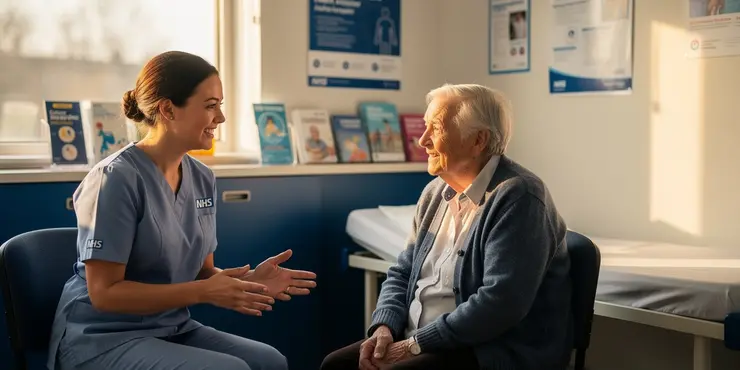
At what age should one get the shingles vaccine?
Relevance: 84%
-
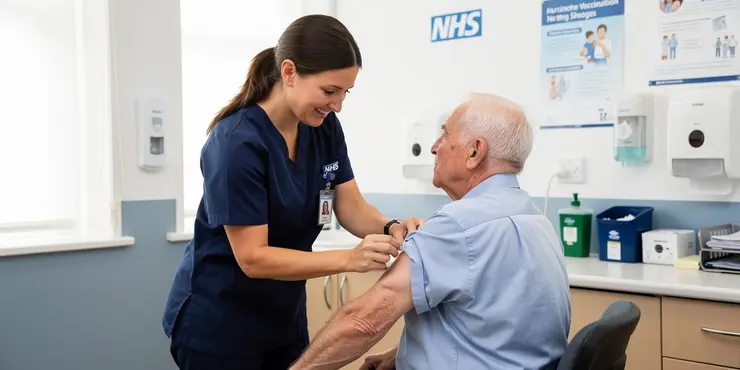
At what age should one get the shingles vaccine?
Relevance: 83%
-
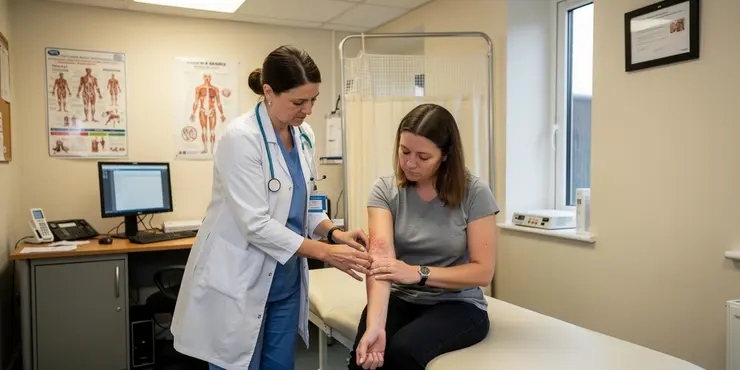
How is shingles diagnosed?
Relevance: 68%
-

Who is at risk of developing shingles?
Relevance: 65%
-
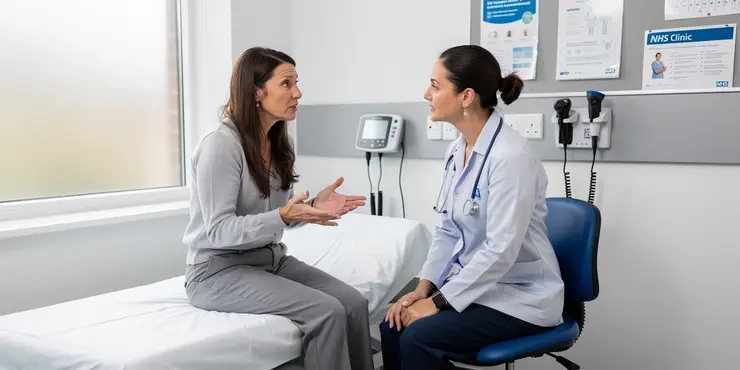
What should I do if I think I have shingles?
Relevance: 62%
-

How long does a shingles outbreak continue before it clears up?
Relevance: 55%
-
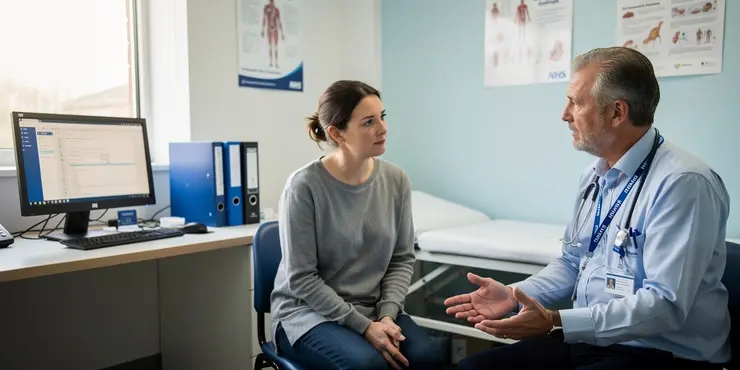
How long does a shingles outbreak continue before it goes?
Relevance: 55%
-
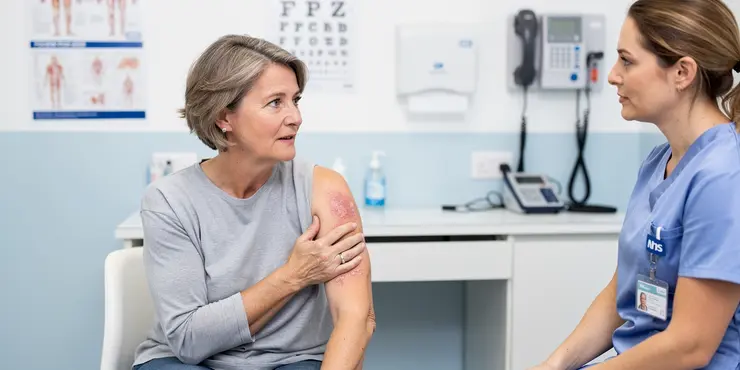
What is postherpetic neuralgia?
Relevance: 48%
-
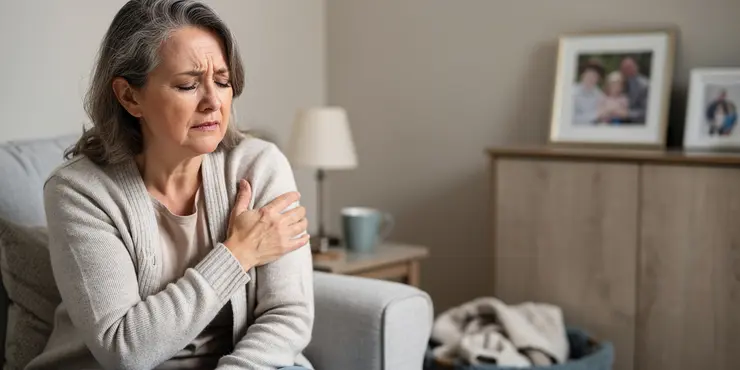
What is postherpetic neuralgia?
Relevance: 46%
-
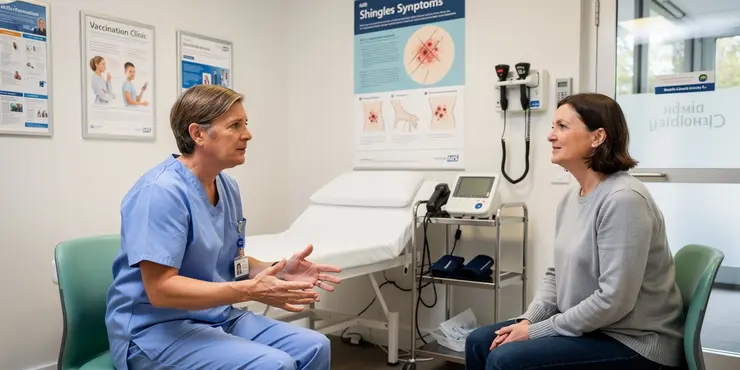
What are the symptoms of shingles?
Relevance: 44%
-

Can you get chickenpox more than once?
Relevance: 40%
-

Can adults get chickenpox?
Relevance: 35%
-
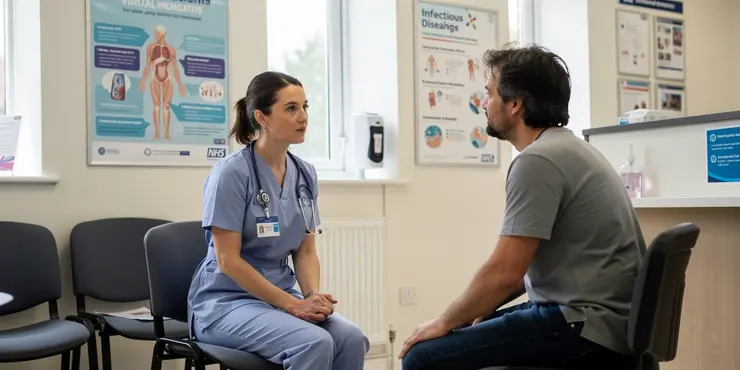
What causes viral meningitis?
Relevance: 19%
-
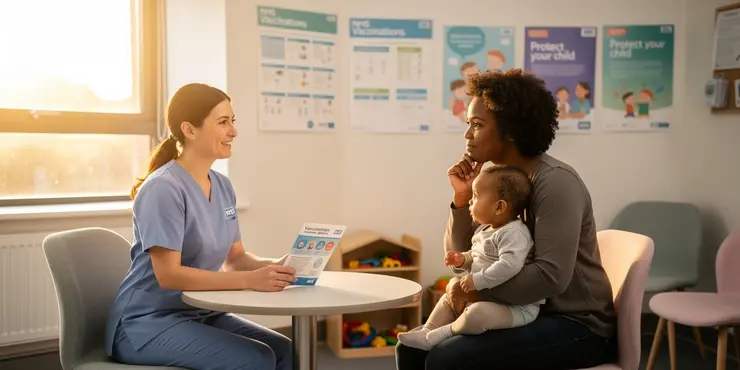
Should I get the chickenpox vaccine?
Relevance: 15%
-

Is chickenpox contagious?
Relevance: 14%
-
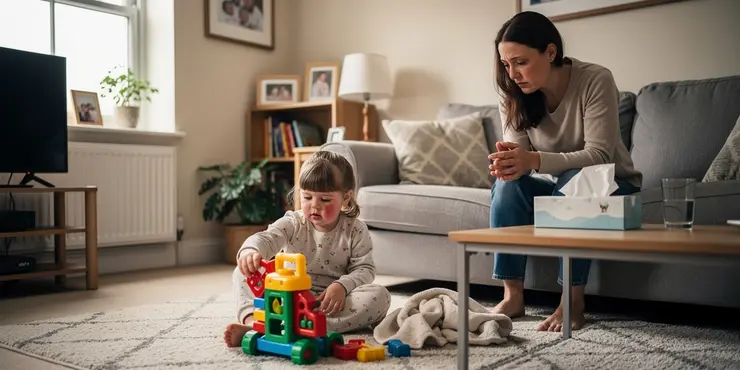
What is Chickenpox?
Relevance: 14%
-

What is a neuropathy?
Relevance: 14%
-
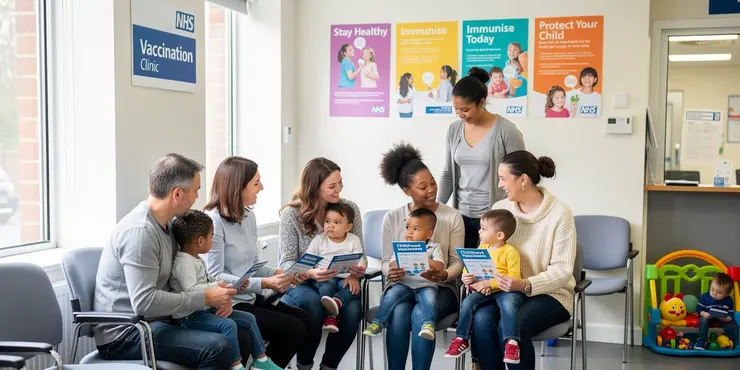
Have there been any government campaigns to increase vaccination rates?
Relevance: 14%
-

Can everyone receive vaccines?
Relevance: 13%
-
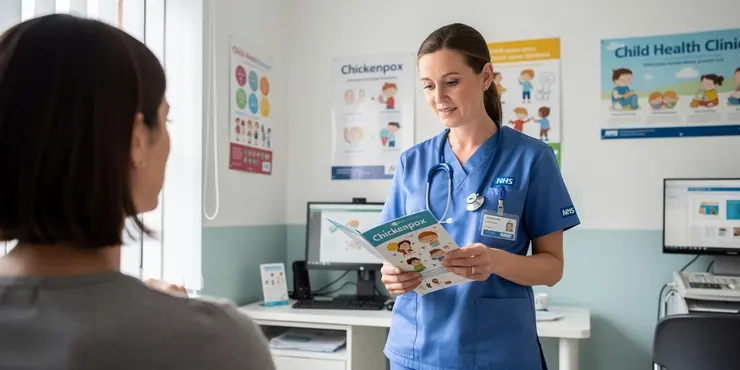
How is chickenpox spread?
Relevance: 13%
What is Shingles?
Shingles, also known as herpes zoster, is a viral infection that causes a painful rash. It is caused by the varicella-zoster virus, which is the same virus responsible for chickenpox. Once a person has recovered from chickenpox, the virus remains dormant in the nerve tissues near the spine and brain. Years later, the virus can reactivate as shingles, causing a distinctive rash and intense discomfort.
Symptoms of Shingles
The primary symptom of shingles is a painful rash that typically appears on one side of the body or face. Before the rash develops, people often experience pain, itching, or tingling in the area where it will form. The rash then usually appears a few days later, presenting as a band or strip of raised blisters. These blisters eventually fill with fluid and crust over.
In addition to the rash, other symptoms of shingles can include fever, headache, chills, and upset stomach. The pain associated with shingles can range from mild to severe and often precedes the rash by a few days. This pain can be a burning, tingling, or numbing sensation.
Who is at Risk?
Anyone who has had chickenpox in the past can develop shingles, but it is most common in older adults and people with weakened immune systems. The risk of shingles increases with age, and it is estimated that about one in four people will experience shingles in their lifetime. Factors that may increase the risk include stress, illness, or medications that weaken the immune system.
Complications of Shingles
A significant complication of shingles is postherpetic neuralgia (PHN), where the pain associated with shingles persists long after the rash has healed. PHN can be debilitating and difficult to treat, significantly impacting the quality of life. Other complications may include vision loss if the rash occurs around the eyes, skin infections, and neurological problems.
Treatment and Prevention
There is no cure for shingles, but early treatment can help reduce the severity and duration of the symptoms. Antiviral medications such as acyclovir, valacyclovir, and famciclovir are commonly prescribed to manage the infection. Pain relief is also an important aspect of treatment, often managed with over-the-counter or prescription painkillers.
Vaccination is the most effective way to prevent shingles. In the UK, the NHS offers a shingles vaccine to people in their 70s. Vaccination can significantly reduce the risk of developing shingles and the severity of symptoms if the virus does reactivate.
Conclusion
Shingles is a painful condition that stems from the same virus that causes chickenpox. While it can affect anyone who has had chickenpox, older adults are particularly at risk. Recognising the symptoms and seeking prompt medical care can help manage the condition effectively. Preventative vaccination is strongly recommended to protect against shingles and its complications.
What is Shingles?
Shingles is a virus that gives you a sore rash. It is caused by the same virus that gives you chickenpox. After you have chickenpox, the virus stays inactive in your body, near your spine and brain. Many years later, it can become active again and cause shingles, which makes a rash and pain.
Symptoms of Shingles
The main sign of shingles is a painful rash. This rash usually shows up on one side of your body or face. Before the rash is there, you might feel pain, itching, or tingling where it will be. A few days later, the rash comes as raised blisters in a band or strip. The blisters fill with fluid and then crust over.
Other signs of shingles can be fever, headache, chills, and an upset stomach. The pain from shingles can be a burning, tingling, or numbing feeling. It is often there a few days before you see the rash.
Who is at Risk?
If you have had chickenpox, you can get shingles. It happens more in older people or those with weak immune systems. The older you get, the more likely you are to get shingles. Things like stress, being ill, or some medicines can raise your chances.
Complications of Shingles
One big problem from shingles is postherpetic neuralgia (PHN), where the pain lasts long after the rash is gone. This can be very hard to live with and may be tough to treat. Other problems can be losing your sight if the rash is near your eyes, skin getting infected, and nerve problems.
Treatment and Prevention
There is no cure for shingles, but getting treated quickly can help make the symptoms less bad and shorter. Doctors may give you medicines like acyclovir, valacyclovir, or famciclovir to fight the virus. Pain relievers are also important and can be bought at the store or given by a doctor.
The best way to stop shingles is to get vaccinated. In the UK, people in their 70s can get a shingles vaccine from the NHS. This vaccine can lower the chance of getting shingles and make it less bad if you do get it.
Conclusion
Shingles is a painful illness from the same virus as chickenpox. While anyone who had chickenpox can get shingles, older people are more at risk. Knowing what shingles looks like and getting medical help quickly can help manage it. Getting a vaccine is a good way to protect yourself from shingles and its problems.
Frequently Asked Questions
What is shingles?
Shingles is a viral infection that causes a painful rash. It is caused by the varicella-zoster virus, the same virus that causes chickenpox.
What are the symptoms of shingles?
The primary symptom of shingles is a painful skin rash, often with blisters, that usually appears on one side of the body. Other symptoms may include fever, headache, and fatigue.
Who is at risk for shingles?
Anyone who has had chickenpox is at risk for shingles, but it is more common in older adults and individuals with weakened immune systems.
How is shingles transmitted?
Shingles is not spread from person to person, but the varicella-zoster virus can be transmitted through direct contact and cause chickenpox in someone who hasn't had it before.
Is there a vaccine for shingles?
Yes, there is a vaccine called Shingrix, which is recommended for adults over 50 to prevent shingles and its complications.
What causes shingles to reactivate?
The varicella-zoster virus can remain dormant in nerve tissue after causing chickenpox and reactivate years later as shingles.
How long does a shingles outbreak last?
A shingles outbreak typically lasts 3 to 5 weeks but can vary depending on the severity and treatment.
Can shingles be cured?
There is no cure for shingles, but antiviral medications can help reduce severity and duration of an outbreak.
What complications can arise from shingles?
Complications from shingles can include postherpetic neuralgia (persistent pain after the rash has healed) and vision loss if the rash occurs near the eyes.
Is shingles contagious?
Shingles itself is not contagious, but the virus can cause chickenpox in someone who hasn't had chickenpox or been vaccinated against it.
Can stress trigger shingles?
Stress may contribute to a weakened immune system, which can trigger the reactivation of the varicella-zoster virus, leading to shingles.
What are the treatment options for shingles?
Treatment options include antiviral medications, pain relief, and sometimes corticosteroids to reduce inflammation in severe cases.
Can shingles be prevented?
Vaccination is the best way to prevent shingles. Shingrix is recommended for most adults over the age of 50.
What should I do if I think I have shingles?
If you think you have shingles, it's important to see a doctor as soon as possible for diagnosis and potential treatment.
Can shingles occur more than once?
While it is rare, shingles can occur more than once. A second outbreak is less common but possible.
What part of the body does shingles usually affect?
Shingles commonly affects the torso or face, usually occurring in a band-like pattern on one side of the body.
Can children get shingles?
While it is less common, children who have had chickenpox can develop shingles, especially if they have a weakened immune system.
How is shingles diagnosed?
A doctor can diagnose shingles based on the appearance of the rash and the presence of pain in a specific area of the body.
What is postherpetic neuralgia?
Postherpetic neuralgia is a condition characterized by persistent nerve pain following a shingles outbreak. It can last weeks, months, or even longer after the rash has healed.
Are there any home remedies for shingles?
While professional medical treatment is recommended, some home remedies like cool compresses, colloidal oatmeal baths, and calamine lotion can help relieve symptoms.
What is shingles?
Shingles is a skin problem. It causes a painful rash. You might get blisters. It is from the chickenpox virus. If you had chickenpox, you can get shingles. See a doctor if you think you have shingles.
Helpful Tip: Ask someone to help read this with you. Use pictures and videos to learn more.
Shingles is an illness you get from a virus. It gives you a sore rash on your skin. The virus that causes shingles is the same one that makes chickenpox.
What happens when you have shingles?
The main sign of shingles is a sore skin rash. It often has blisters and shows up on one side of the body. You might also have a fever, headache, and feel very tired.
Who can get shingles?
If you have had chickenpox, you might get shingles. Shingles happen more often to older people or people who are sick and have weak bodies.
Try using picture books or talking with someone while you read. This can help make it easier to understand the information.
How do you catch shingles?
Shingles is a virus. You can catch it if you’ve had chickenpox before. You can’t get shingles from someone who has it, but you can catch chickenpox if you have never had it before.
Shingles spreads through direct contact with the rash.
To avoid spreading it, cover the rash and wash your hands often.
Talk to a doctor if you need help or have questions.
Shingles does not spread from one person to another. But, the virus that causes shingles can spread if you touch it. If someone has not had chickenpox before, they can get chickenpox from this virus.
Can I get a shot to stop shingles?
Yes, there is a vaccine called Shingrix. It is for people over 50 years old. It helps stop shingles and problems it causes.
Why do people get shingles again?
The chickenpox virus can sleep in your body after you have had chickenpox. It can wake up years later and cause another illness called shingles.
How long does shingles last?
Shingles is a rash that can hurt. It often goes away after 2 to 4 weeks.
If you need help understanding this, you can ask someone to explain it to you.
Tools that read out loud can also help you understand.
Shingles usually lasts 3 to 5 weeks, but it can be different for each person. How long it lasts depends on how bad it is and the treatment you get.
Can shingles be fixed?
There is no way to make shingles go away completely, but medicine can help make it less painful and go away faster.
What problems can happen because of shingles?
Sometimes, shingles can cause problems.
One problem is called postherpetic neuralgia. This means you might still feel pain even after the rash is gone.
If you get a rash close to your eyes, it could hurt your eyesight.
If you have trouble reading, you can ask someone to help read it to you. Listening to audiobooks or using screen readers can also make it easier.
Can you catch shingles from someone else?
Shingles cannot be spread to others. But the virus can give someone chickenpox if they have never had chickenpox or the vaccine.
Can stress make shingles happen?
When you are stressed, it can make your body's defenses weaker. This can wake up an old virus called varicella-zoster, which can cause a sickness called shingles.
How can you treat shingles?
There are different ways to help people feel better:
- Medicines to fight viruses.
- Medicines to help with pain.
- Sometimes, special medicines called steroids help if the person is very sick.
Can you stop shingles?
The best way to stop shingles is to get a vaccine. Shingrix is a vaccine that most people over 50 should get.
What to Do If You Think You Have Shingles
If you feel sick and think it might be shingles, here are some easy steps you can follow:
- Go to the Doctor: Ask an adult to help you visit a doctor. The doctor can tell you if you have shingles and give you medicine.
- Tell Someone: Talk to a parent or someone you trust. They can help you feel better and take you to the doctor.
- Rest: Make sure you rest a lot. It will help your body get better.
- Stay Clean: Keep the rash area clean and covered. It will stop it from spreading and getting worse.
- Ask for Help: It’s okay to ask for help if you are in pain or feeling upset.
Using tools like a picture dictionary or apps that read text aloud can also help you understand better.
If you think you have shingles, you should see a doctor quickly. The doctor can tell you if you have shingles and help you get better.
Can you get shingles more than one time?
Yes, you can get shingles more than once.
Shingles is a rash that hurts. It happens after you had chickenpox.
Here are some tips to help:
- Ask a doctor if you have questions.
- Use cool cloths on the rash to feel better.
- Take medicine if your doctor says it is okay.
It is not very common, but some people can get shingles again. Most people only get it one time, but it can happen more than once.
Which body part does shingles often hurt?
Shingles can cause a rash. It often shows up on your chest or face. The rash usually looks like a band on one side of your body.
Can kids get shingles?
Yes, kids can get shingles. It is not common, but it can happen.
If a child had chickenpox before, they might get shingles later.
If you are worried, talk to a doctor or nurse. They can help and give more information.
It does not happen often, but kids who had chickenpox can get shingles later. This can happen if their body's defense system is not very strong.
How do doctors know if someone has shingles?
A doctor can tell if you have shingles by looking at the rash and checking if you feel pain in a certain part of your body.
If reading is hard, you can try using audiobooks or reading apps that help you understand better.
What is postherpetic neuralgia?
Postherpetic neuralgia is nerve pain. It can happen after having shingles. Shingles is a skin rash. The pain can last for a long time.
Here are some tips to understand this better:
- Look at pictures: Pictures can help you learn about shingles.
- Ask for help: Talk to a doctor if you want to know more.
- Use simple words: Break down big words into smaller ones.
Postherpetic neuralgia is when you still feel pain after having shingles. Shingles is a rash that hurts. This pain can last for weeks, months, or even longer after the rash is gone.
Can I treat shingles at home?
Yes, some things can help you feel better at home if you have shingles:
- Cool Baths: Take cool baths to help soothe your skin.
- Calamine Lotion: Put calamine lotion on itchy spots to feel better.
- Rest: Make sure to get plenty of rest so your body can heal.
- Loose Clothes: Wear loose clothing to avoid bothering your skin.
Also, here are some tips:
- Ask someone you trust to help you if you need it.
- Use simple apps or tools to remind you to take care of yourself.
It is best to see a doctor, but there are things you can do at home to feel better. You can use a cool cloth on your skin, take a bath with special oatmeal, and use calamine lotion. These might help you feel better.
Useful Links
This website offers general information and is not a substitute for professional advice.
Always seek guidance from qualified professionals.
If you have any medical concerns or need urgent help, contact a healthcare professional or emergency services immediately.
Some of this content was generated with AI assistance. We’ve done our best to keep it accurate, helpful, and human-friendly.
- Ergsy carfully checks the information in the videos we provide here.
- Videos shown by Youtube after a video has completed, have NOT been reviewed by ERGSY.
- To view, click the arrow in centre of video.
- Most of the videos you find here will have subtitles and/or closed captions available.
- You may need to turn these on, and choose your preferred language.
- Go to the video you'd like to watch.
- If closed captions (CC) are available, settings will be visible on the bottom right of the video player.
- To turn on Captions, click settings .
- To turn off Captions, click settings again.
More Items From Ergsy search
-

Is shingles contagious?
Relevance: 100%
-

What is shingles?
Relevance: 100%
-

What is Shingles?
Relevance: 100%
-

Is shingles contagious?
Relevance: 99%
-

Can shingles be prevented?
Relevance: 96%
-

What causes shingles?
Relevance: 95%
-

What causes shingles?
Relevance: 95%
-

Is the shingles vaccine safe?
Relevance: 95%
-

How is shingles diagnosed?
Relevance: 95%
-

Can shingles be prevented?
Relevance: 95%
-

What are the symptoms of shingles?
Relevance: 94%
-

Who is at risk of developing shingles?
Relevance: 92%
-

Are there any complications associated with shingles?
Relevance: 92%
-

Are there any complications associated with shingles?
Relevance: 91%
-

Can stress trigger shingles?
Relevance: 91%
-

What treatments are available for shingles?
Relevance: 91%
-

Can stress trigger shingles?
Relevance: 91%
-

What treatments are available for shingles?
Relevance: 90%
-

Can the shingles vaccine cause chickenpox?
Relevance: 89%
-

Can the shingles vaccine cause chickenpox?
Relevance: 88%
-

At what age should one get the shingles vaccine?
Relevance: 84%
-

At what age should one get the shingles vaccine?
Relevance: 83%
-

How is shingles diagnosed?
Relevance: 68%
-

Who is at risk of developing shingles?
Relevance: 65%
-

What should I do if I think I have shingles?
Relevance: 62%
-

How long does a shingles outbreak continue before it clears up?
Relevance: 55%
-

How long does a shingles outbreak continue before it goes?
Relevance: 55%
-

What is postherpetic neuralgia?
Relevance: 48%
-

What is postherpetic neuralgia?
Relevance: 46%
-

What are the symptoms of shingles?
Relevance: 44%
-

Can you get chickenpox more than once?
Relevance: 40%
-

Can adults get chickenpox?
Relevance: 35%
-

What causes viral meningitis?
Relevance: 19%
-

Should I get the chickenpox vaccine?
Relevance: 15%
-

Is chickenpox contagious?
Relevance: 14%
-

What is Chickenpox?
Relevance: 14%
-

What is a neuropathy?
Relevance: 14%
-

Have there been any government campaigns to increase vaccination rates?
Relevance: 14%
-

Can everyone receive vaccines?
Relevance: 13%
-

How is chickenpox spread?
Relevance: 13%


